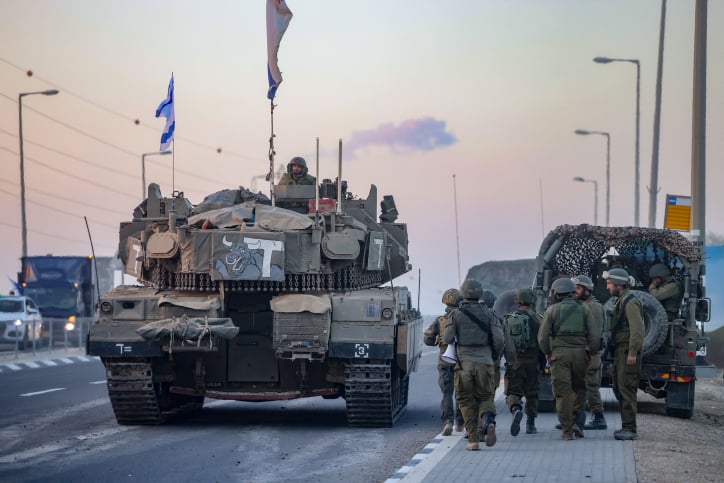Top Israeli military leaders concerned lack of munitions and spare parts could hamper possible war with Hezbollah, leading them to push for a truce with Hamas.
By World Israel News Staff
The IDF’s top brass are pressing Israeli Prime Minister Benjamin Netanyahu to agree to a ceasefire with the Hamas terror organization, even if it means allowing Hamas to remain in power in Gaza, The New York Times reported Tuesday.
The report cites six senior Israeli security officials, both current and former, who claimed the Israeli military’s leadership has shifted its position on a ceasefire over the past few months, as the IDF has returned to fight in areas of the Gaza Strip which were secured earlier in the war then abandoned.
“The military is in full support of a hostage deal and a cease-fire,” former national security advisor Eyal Hulata told the Times.
Israeli military leaders, Hulata continued, believe a truces now would benefit the IDF without limiting future efforts to destroy Hamas’ military capacity. Hulata also cited concerns he said IDF leaders have expressed regarding a two-front war in Lebanon and Gaza.
“They believe that they can always go back and engage Hamas militarily in the future.”
Continuous operations in the Gaza Strip and daily fighting against Hezbollah in southern Lebanon have depleted Israel’s military reserves of ammunition and equipment, Hulata said, a major source of anxiety for top Israeli generals.
“They understand that a pause in Gaza makes de-escalation more likely in Lebanon. And they have less munitions, less spare parts, less energy than they did before — so they also think a pause in Gaza gives us more time to prepare in case a bigger war does break out with Hezbollah.”
At the same time, four senior Israeli officers told the Times, Israeli’s military leadership are growing increasingly frustrated with Prime Minister Benjamin Netanyahu’s approach to the war, in particular his refusal to commit to a post-war strategy.
Thus far, Netanyahu has declined to either lay out plans for an alternative leadership in Gaza – led by locals or the Palestinian Authority – or begin a long-term military occupation of Gaza, including civil administration of the population.
This vacuum has inspired fears among Israel’s top brass of a “forever war,” in which the IDF continues to move in and out of various areas in the Gaza Strip in pursuit of Hamas forces, without establishing long-term control.
An IDF spokesperson responded to Tuesday’s report, saying the military is “determined to keep fighting until it achieves the goals of the war — the destruction of Hamas’s military and governance capabilities, the return of our hostages, and the safe return of residents in the north and south to their homes.
“The IDF will continue fighting Hamas across the Gaza Strip, alongside continuing to improve our readiness for a war in the north, and defending all of our borders.”


